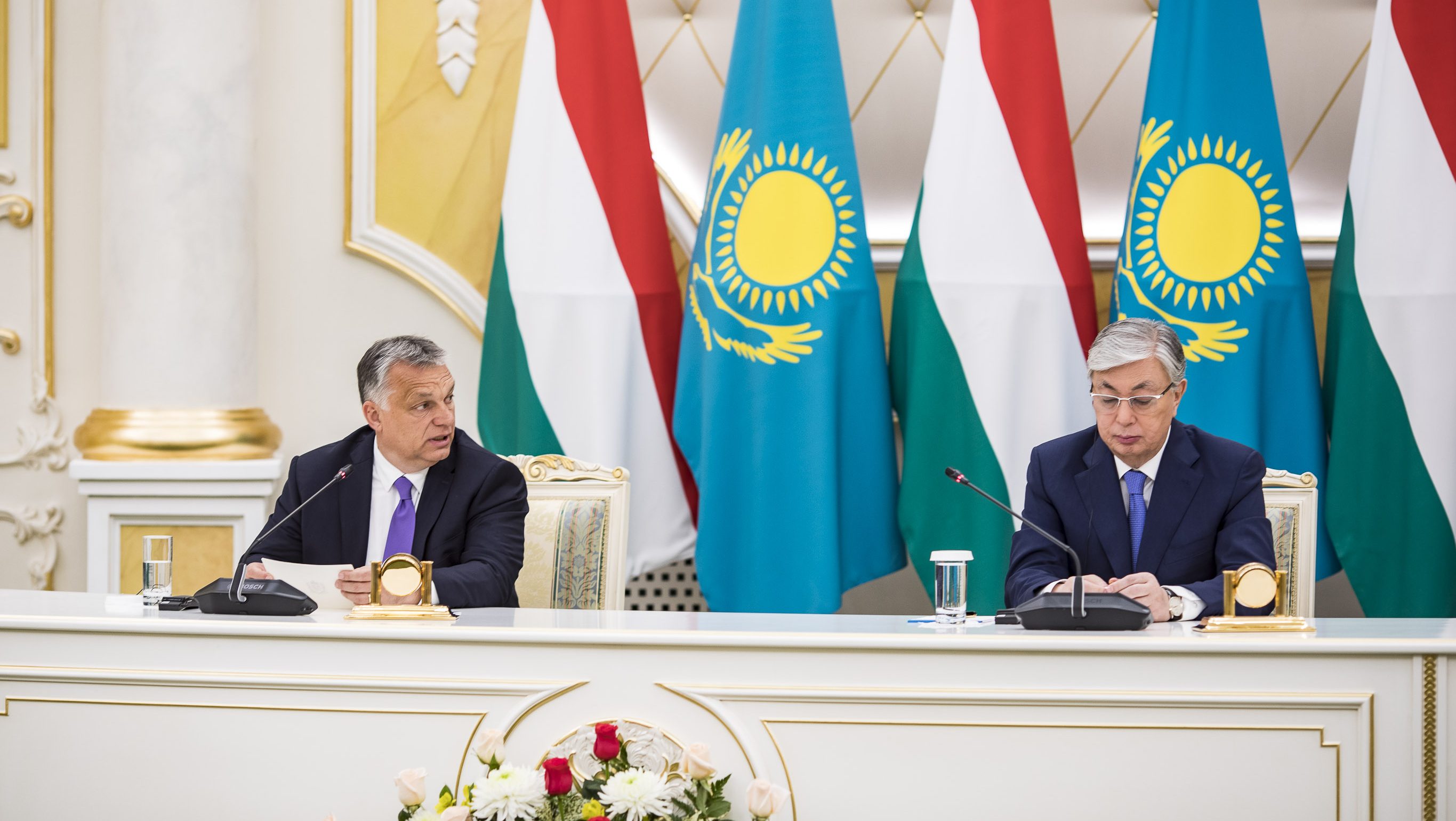
The Prime Minister was on an official visit to Kazakhstan, where he had talks with President Kassym-Jomart Tokayev. The two leaders later gave statements to the press.

Mr. Orbán stressed that strengthening relations with Eastern and Central Asian countries is easy for Hungary, as its people share historical roots with those in the Central Asia region, and therefore there are cultural foundations for the intensification of diplomatic and economic relations.
He stated that developments in international politics today are a response to this new situation. He said that in the past in the areas of technology and economic development, and also in attempts aimed at finding successful political systems, the West could see itself as the best in the world. Now, however, the situation has changed, he noted, and the East is continuously gaining in strength. He added that this change in relative strength will continue over the next ten years.
The Prime Minister said that “we tend to forget that democracy means more than the people being able to vote in elections and being given a chance to become involved in debate on public affairs”. According to the ancient Greek concept, he said, democracy also means a form of government in which “freedom of opinion and participation must eventually find expression in effective and stable governance”.
He pointed out that this is why the most successful countries today are those with the most stable political systems, and in recent years Kazakhstan has been at the forefront in terms of stability. He noted that recent changes have also added to this stability, and that they deserve recognition.

Mr. Orbán underlined that the geographical distance between the two nations is vast, and it is therefore difficult – but not impossible – to create “strong, tightly-woven economic relations”. He said that the two countries have worked hard to set up joint ventures, with Hungary being among the first to take part in projects which seek to create a financial centre in Nur-Sultan.
He cited the setting up of an investment fund which has yielded its first results: a major agricultural project has already been opened, and the construction of a large dairy plant has been approved.
The Prime Minister also said that in the coming days a Hungarian business delegation of around one hundred people will arrive in Kazakhstan to explore further avenues of cooperation.
He welcomed the fact that 250 Kazakh students are presently studying in Hungary with scholarships, because “friendship is the best means of conquering distance, and friendship can only grow if we have mutual knowledge of one another”. He said that when these Kazakh students return to their native country they will be good ambassadors for Kazakh-Hungarian friendship and economic cooperation.
Kazakh President Kassym-Jomart Tokayev stressed that Hungary is an important partner for Kazakhstan in the EU and in the Central European region, that the two countries have shared political and economic interests, and that they are linked by historical roots.
He recalled that Hungary was the first Central European country to sign a strategic partnership agreement with Kazakhstan, thus proving that the two countries understand each other and are seeking to strengthen their cooperation.
The Kazakh president highlighted the importance of the work of the strategic council and the intergovernmental joint committee. He said that the large Hungarian business delegation arriving at the end of the month will give trade and economic relations another boost, and will raise investment cooperation to a new level. He added that in his country all the conditions for investment are in place, and there is a positive business environment.
The President thanked Hungary for offering scholarships to 250 Kazakh students. This, he said, strengthens friendship between the two countries.

Mr. Orbán arrived in Kazakhstan on Tuesday, when he met Prime Minister of Kazakhstan Askar Mamin, and also had talks with the first President of Kazakhstan Nursultan Nazarbayev.
From there the Prime Minister will travel on to Beijing, where he will have talks with Chinese leaders and attend the second Belt and Road Forum.
